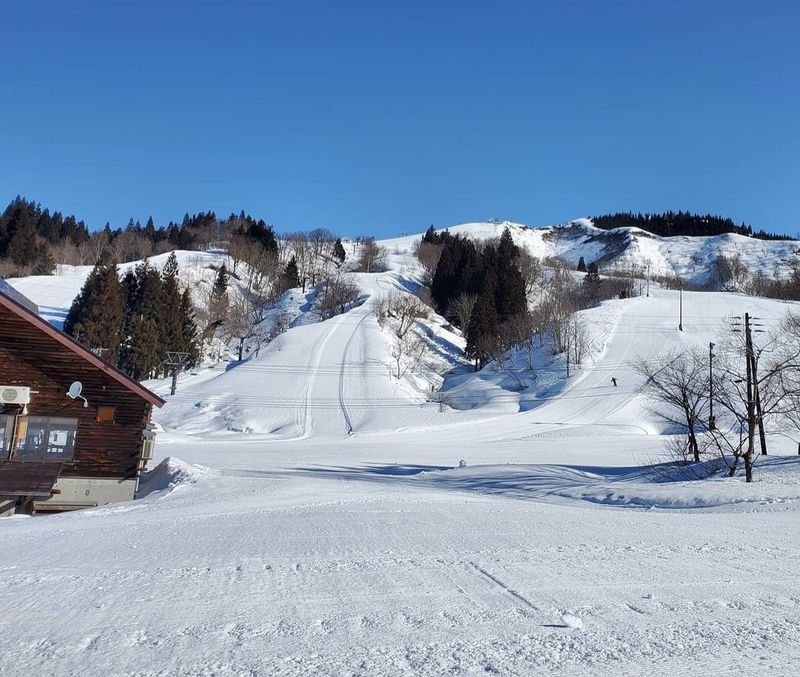Dec 19, 2022
How to ski safely in Japan
With the winter season upon us, many of us are likely contemplating seasonal activities like skiing and snowboarding. Before I moved to Japan I'd never lived somewhere with snow, let alone tried skiing or boarding – and there are definitely some considerations to make in order for it to be a safe and enjoyable experience.
If you're planning on heading to the slopes over the next few months, these are my recommendations for you to have the best time possible.

A bluebird day at Hakkaisan Roku from last year – it's the closest ski slope to our home.
Make sure you wear proper gear
There's a saying in a number of Scandinavian countries – "there's no bad weather, only bad clothing" – and the same can be applied to preparing for your skiing or snowboarding trip. Having the proper gear is going to make the overall experience much more pleasant, so make sure you've got appropriate boots, thermals, waterproof ski jackets + pants, good quality gloves + socks, etc. Many ski resorts will rent out all the gear you need, so you don't necessarily have to spend an arm and a leg on things you'll use once a year – but I would recommend checking on that ahead of time with the ski resort you plan on visiting.
Remember that it's an intense workout, so warm up beforehand!
It might go without saying, but as well as being a fun leisure activity, skiing/snowboarding also constitutes quite a workout. Before you hit the slopes, I highly recommend treating it like you would a gym session or other strenuous physical activity and warm up adequately beforehand. I can almost guarantee that if you don't stretch and warm up those muscles before you start your day, you'll be feeling pretty sore and sorry for yourself the next morning.
Pick slopes that are at your level
Most ski slopes have three main levels of difficulty – beginners, intermediates, and advanced. It's important to pick the level that you're at, and I would still recommend starting with a beginners slope to see how you find it. There's no shame in starting at that level even if you have skied before, so that you can get your bearings and adjust accordingly.
Follow trail rules, especially regarding back country skiing
Another thing that should hopefully go without saying is to follow the trail rules, especially regarding back country skiing. A lot of resorts absolutely forbid back country skiing because of avalanche risks, and data from 2010 to 2020 noted that 80% of snow related accidents involved back country skiing. Even if you're an experienced skier or boarder, it's really not worth the risk.



0 Comments